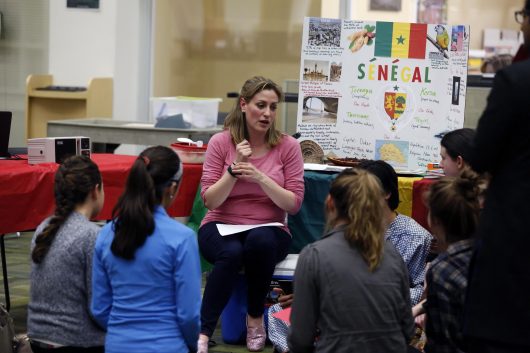10 Facts About Education in Switzerland

Education in Switzerland is not only unconventional compared to many other nations but also compulsory. With a wide variety of schools ranging from local Swiss schools to private schools to bilingual schools to international schools, the education standards are extremely high and, much like Switzerland itself, anything but boring.
- The education system of Switzerland is largely decentralized. There exists 26 cantons, which are overseen by the State Secretariat for Education, Research and Innovation (SERI). However, each canton creates and implements its own standards, which can be detrimental for families moving from one region of the nation to another.
- Switzerland is ranked number nine out of 65 nations and economies in a recent OECD/PISA survey of educational standards among 15-year-olds.
- Most of the local and international schools are free but still exist at the cost of parents’ paying extremely high taxes. Education in Switzerland is compulsory, so there really is no way for parents to sidestep paying such taxes.
- Compulsory education lasts for 9–11 years, with some children beginning compulsory education when they are four years old and others at six years, until about 15 years old.
- Since most students are educated in state schools, they will be learning in an environment that is rich in a variety of cultures, including variations in linguistic backgrounds.
- Like many universities in the U.S., Switzerland’s school year conventionally begins between August and September and will carry on for two periods of 12 weeks at a time.
- However, the times in which schools operate may be a bit stressful for working parents. Younger students will normally attend school in the morning with a break in the afternoon, which can be potentially problematic for many parents. Many schools do offer supervised lunches and after school care to alleviate such inconveniences.
- The structure of Switzerland’s system begins with primary education (a sort of kindergarten), then a lower secondary education followed by an upper secondary education, which may even include vocational training. The highest level, tertiary level education, is university level or higher education.
- Home schooling is uncommon in Switzerland. In fact, laws addressing it vary from canton to canton, and in some cantons, it is considered illegal.
- Most notably, children and young adolescents with special educational needs have a right to education and support from specialists from birth up until their 20th birthday. Children are assessed by specialized agencies of their canton and are given support through their school, which is also mainly free, though some special cases may vary.
Education in Switzerland ultimately exists to provide schooling for all, regardless of background or disability, a vision that embodies Global Goal number four established by the U.N. to eliminate extreme poverty.
– Veronica Ung-Kono
Photo: Flickr
